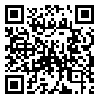BibTeX | RIS | EndNote | Medlars | ProCite | Reference Manager | RefWorks
Send citation to:
URL: http://mi.khu.ac.ir/article-1-148-en.html
Dreaming has historically been the source of human inspiration. The Qur'an mentions the dream of the Prophet of Islam in three cases, as it states the dream of some previous prophets. According to the verses of the Qur'an, the true dream is not limited to the Prophets of God, just as Joseph's two companions in prison saw their future destiny in a dream. So, the Qur'an does not believe that what appears in dreams is the product of human imagination and has no validity, but the Qur'an speaks of the true dreams of prophets and even non-prophet.
Describing the beliefs of Muslims, John of Damascus, a Christian saint, said that they believed that their Prophet had received the Qur'an in a dream. The claim of the revelation of some verses of the Qur'an regarding dreams is also seen in Islamic narrations, as the revelation of the first five verses of Sūrah Al-Alaq is considered a dream by Tabari. Moreover, the book Sahih Muslim has announced the revelation of Sūrah AI-Kawthar in a light dream of the Messenger of God. Thus, claiming the revelation of a part of the Qur'an in a dream does not violate the consensus of narrators and Islamic scholars.
| Rights and permissions | |
 |
This work is licensed under a Creative Commons Attribution-NonCommercial 4.0 International License. |







